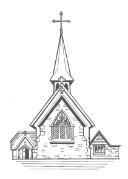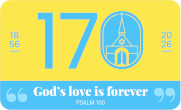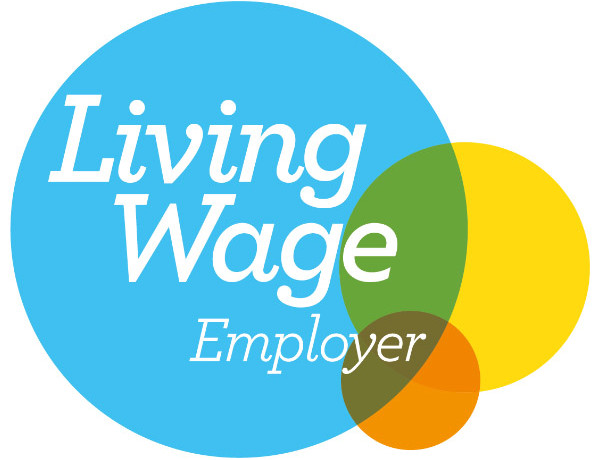Welcome! Whatever has brought you to this page on the website, you are welcome here.
Thinking about becoming a Catholic is a journey of years for some people, and months for others. There can be moments where the journey is paused, and moments of great enthusiasm, inspired by people we meet, a time of prayer, or a Bible reading.
Each person’s journey is individual, and hopefully the programme that we run at St Edward’s gives you time and space, lots of wonderful accompaniment, and along the way a chance to learn more about the Catholic Church.
Some come to the group and decide to become fully initiated Catholics during the Easter Vigil at St Edwards. Others use the group to simply find out more. Whatever the outcome, it’s an open group that attracts a wide range of interested people. Normally we meet for the first time with a social evening sometime in the summer, and then the sessions below are weekly from September until Easter, with follow up after Easter. You can dip in and out of the programme in whatever way suits you.
The people running the programme have a lot of experience – and some of them were part of the sessions as participants in recent years. We hope you find it friendly, welcoming and joyful, and we look forward to meeting you, whenever you are ready.
To chat more about this, contact Fr Dominic at the presbytery, or have a chat after Mass.
Programme Outline
1 Welcome – Your Story
What’s this group about? Is this group for me? These are just two of the many questions we will explore at this session. This is an evening to explain what we are about and a first chance to meet the other members of the group.
2 Church Tour
Churches can be unfamiliar buildings with unfamiliar objects and often uncomfortable seats! Here we explore the church interior and identify the key areas and objects. Why is a Crucifix given such prominence in every Catholic Church? Why have statues and stained glass depicting saints?
3 The Call of God and our response
We believe God calls each one of us to discover Him in the unfolding story of our lives. In this session we reflect on our particular story and identify the people and places that have brought us this far in our journey of faith. Remember, Jesus called his disciples to follow him!
4 The Old Testament
This is the story of God’s relationship mainly with the Jewish tradition before the time of Jesus. Are you familiar with the Old Testament? Do you have a favourite passage?
5 Who is Jesus? What did he do & What does he teach?
Using the Gospels we will look at Jesus and explore this man, his family, his followers and his public ministry – his preaching, teaching and miracles. Group members will be asked to read one of the Gospels from start to finish before coming to this session and invited to ask questions and develop an understanding of how the Gospels speak to people in different ways.
6 The New Testament
This is the continuing story of God’s love for us made visible in the person of Jesus of Nazareth. In this session we consider the four Gospels, the Letters of St Paul and the history of the early Church. What makes a Gospel good news?
7 The Mass (Eucharist) – History and Structure
Central to the Catholic Church is the celebration of Mass. In this session we explain something of what goes on during the Mass and discover some of the layers of meaning given to the various gestures, for example: why do Catholics make the sign of the Cross?
8 Who is God (Father, Son and Holy Spirit)
Jesus calls us his brothers and sisters; he taught us to call God ‘Our Father’. Because of this we believe that we can relate to Jesus as a brother. In this session we consider the nature of God and seek to understand why Christians regard God as one and yet speak of a Trinity.
9 Sign and Sacrament
The most intimate and personal things are often expressed by a sign or gesture. The Church has its own signs and the sacraments are particular events which express the presence of Christ acting among us. This session will introduce the topics of sacraments.
10 Sacraments of Initiation
Through the Sacraments of Baptism, Confirmation and Eucharist the Catholic completes their initiation into the life of the Church. In this session we consider something of the richness of meaning in these sacraments. What does it mean to enter into full communion with the Catholic Church?
11 Sacraments of Commitment
The Sacraments of Matrimony and Holy Orders confer a particular mission in the Church and serve to build up the People of God. In this session we explore the richness of the Church’s theology of marriage and the nature of the ordained ministry.
12 Sacraments of Healing
Through the Sacraments of Reconciliation and Anointing the Catholic is provided with ways of receiving God’s forgiveness and healing. In this session we explain what Reconciliation (Confession and Penance) is all about and why a Catholic might ask to be anointed with the Oil of the Sick
13 The Church (History)
What or who are we talking about when we use this word ‘Church’? When was the Church founded? What is its role in today’s world? In this session we will look at what makes the Church, its structure and hierarchy. We will explore its foundation with Christ and the apostles and trace its history to today.
14 Mary, Mother of God.
Who is Mary in the life of the Church? Why do we find a statue of Mary in Catholic Churches? What is the Immaculate Conception all about? In this session we will explore the role of Mary in the Church and how she came to be known as Virgin and Mother. We will also explore the devotion to Mary in particular through the Rosary.
15 Morality & Conscience (Pastoral Care & Christian Response)
In this session we will explore the Church’s teaching on particular moral issues such as: social justice, the right to life, the death penalty and war. We will also explore the areas of sin and forgiveness and look at the role of our conscience in moral decision making.
16 Introducing Holy Week
The Church gives particular importance to the three days before Easter. In this session we explain why. What makes the day of Christ’s death a Good Friday? Why is the Easter Vigil considered the most important church ceremony in the Church’s liturgical calendar?
17 God’s Call for you, What does Christian mean?
We meet Christ in and through our experience of prayer, scripture, each other and the Church. What do we mean by the term Christian and why be one? In this session we will look at belief in God who calls us into relationship with Jesus through the Holy Spirit and what part the Church plays in this relationship.
Throughout the programme there is lots of time for discussion, questions and conversation. The sessions are run in an informal way, and we hope that – along with some learning – there is a journey both personally and as a group.
Important Dates
Along with attendance at Sunday Mass there are a number of milestones or markers on the journey.
Rite of Election Day
First Sunday of Lent At Brentwood Cathedral; this service is led by our Bishop.
Sundays during Lent
Introduction to the parish community at one of the Masses
The Great Holy Week
Palm Sunday
The Great Passion & Procession of Palms
Holy Wednesday
Mass of Chrism at Brentwood Cathedral Rededication of Priesthood
The Holy Tridium
Holy Thursday
Mass of the Lord’s Supper & Washing of Feet
Good Friday
Solemn Service of Veneration of the Cross and Walk of Witness
Holy Saturday
At the Easter Vigil, Baptism and Confirmation of Adults being received into the Church
Easter Sunday
Day of Resurrection







